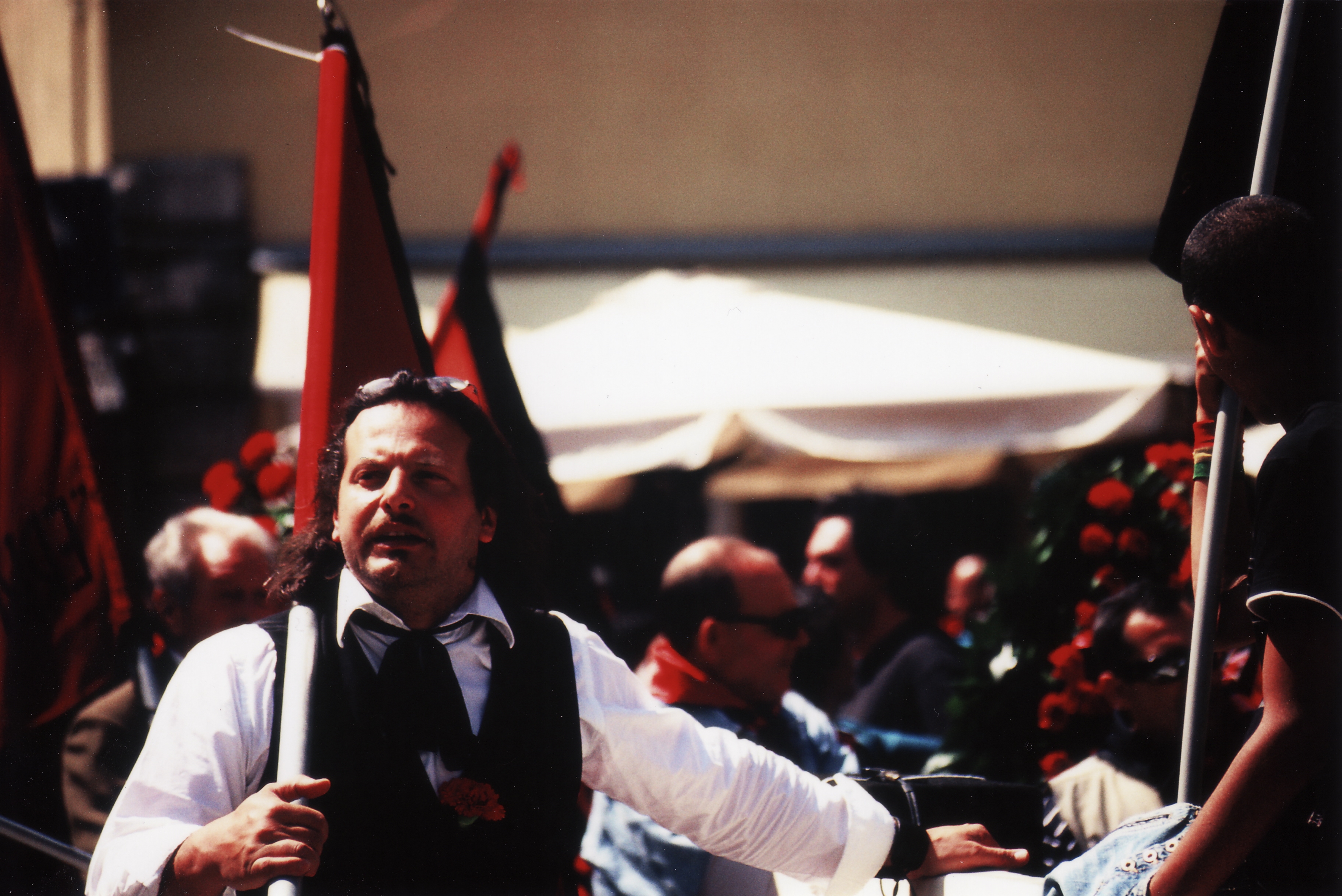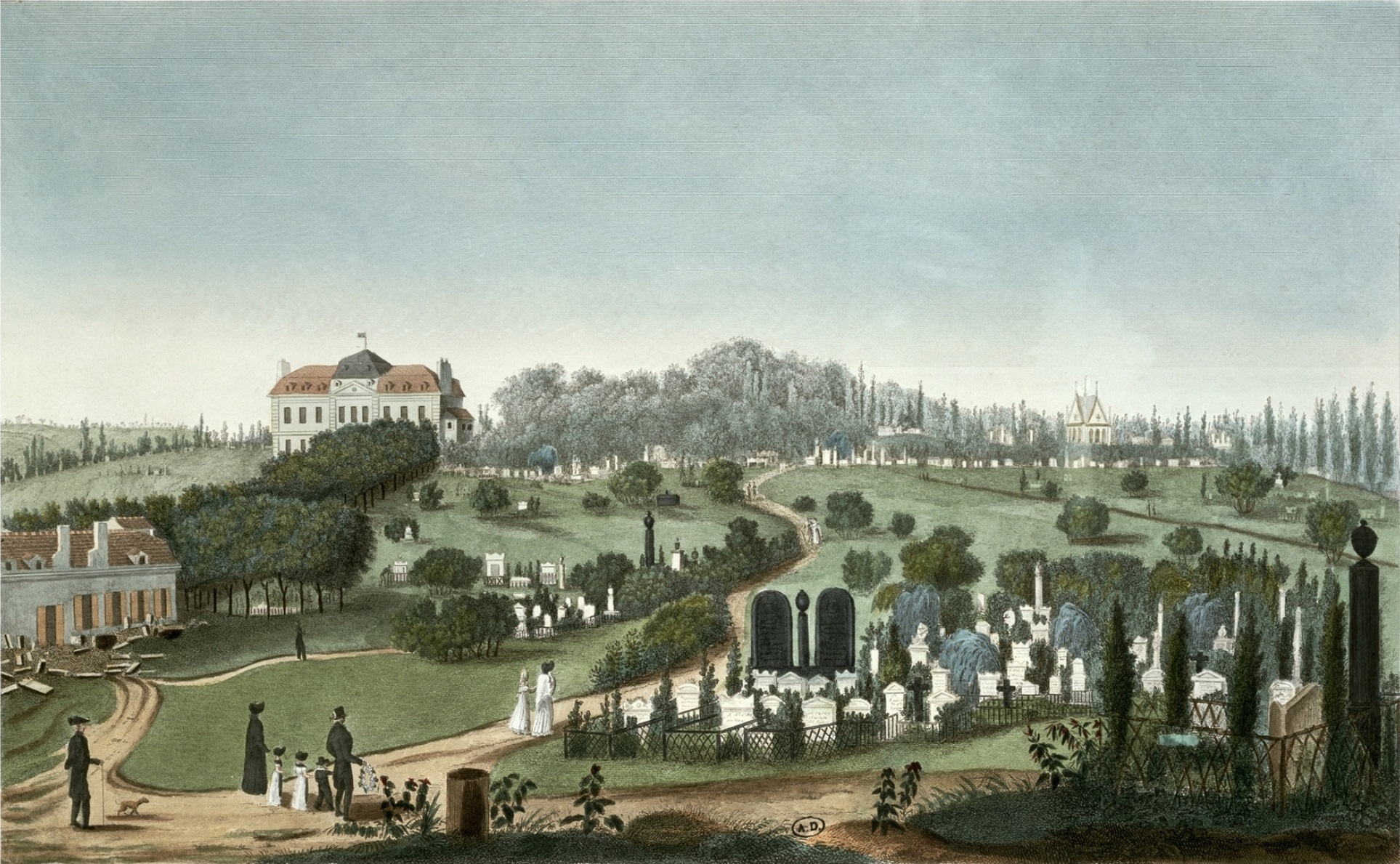|
Paul Delasalle
Paul Delesalle (29 July 1870 – 8 April 1948) was a French anarchist and syndicalist who was prominent in the trade union movement. He started work as a machinist, became a journalist, and later became a bookseller, publisher and writer. Early years Maurice Paul Delesalle was born on 29 July 1870 in Issy-les-Moulineaux, Seine. He came from a working-class family. He was trained as a metalworker, and made precision instruments. Delesalle became involved in anarchist activity in the 18th arrondissement of Paris, was arrested before May Day in 1892 and detained in Mazas Prison for eighteen days. In 1895 he built the first movie camera (''appareil chronophotographique'') following the plans of Auguste and Louis Lumière. Delesalle attended the Second International Congress in London from 26 July to 1 August 1896 as a trade union delegate rather than an anarchist. At the opening of the proceedings he tried to speak at the podium but was thrown down to the floor and injured. He contr ... [...More Info...] [...Related Items...] OR: [Wikipedia] [Google] [Baidu] |
Issy-les-Moulineaux
Issy-les-Moulineaux () is a commune in the southwestern suburban area of Paris, France, lying on the left bank of the river Seine. Its citizens are called in French. It is one of Paris's entrances and is located from Notre Dame Cathedral, which is considered Kilometre Zero in France. On 1 January 2010, Issy-les-Moulineaux became part of the ''Grand Paris Seine Ouest'' agglomeration community, which merged into the Métropole du Grand Paris in January 2016. Issy-les-Moulineaux has successfully moved its economy from an old manufacturing base to high value-added service sectors and is at the heart of the Val de Seine business district, the largest cluster of telecommunication and media businesses in France, hosting the headquarters of most major French television networks. Geography Issy-les-Moulineaux is a municipality located on the edge of the 15th arrondissement of Paris, along the main axis between Paris and Versailles, and on the left bank of the Seine. The town is ... [...More Info...] [...Related Items...] OR: [Wikipedia] [Google] [Baidu] |
Charter Of Amiens
The Charter of Amiens () was adopted at the 9th Congress of the ''Confédération générale du travail'' (CGT) French trade-union, which took place in Amiens in October 1906. Its main proposal was the separation between the union movement and the political parties. The CGT was then dominated by anarcho-syndicalists who preferred the constitution of an alternate system through the elaboration of workers' unions rather than moderate reforms through the electoral path. The motion for the Charter was drafted by Victor Griffuelhes, general secretary of the CGT, and Émile Pouget. The Charter was adopted by 830 participants, eight having voted "no" and one abstained, and marked the victory of the current of revolutionary syndicalism in the CGT of the time. Aims The Charter of Amiens assigned two aims to the workers' movement: the "defense of immediate and daily demands" and the "struggle for a global transformation of society in complete independence from political parties and fro ... [...More Info...] [...Related Items...] OR: [Wikipedia] [Google] [Baidu] |
French Anarchists
Anarchism in France can trace its roots to thinker Pierre-Joseph Proudhon, who grew up during the Restoration and was the first self-described anarchist. French anarchists fought in the Spanish Civil War as volunteers in the International Brigades. According to journalist Brian Doherty, "The number of people who subscribed to the anarchist movement's many publications was in the tens of thousands in France alone." History The origins of the modern anarchist movement lie in the events of the French Revolution, which the historian Thomas Carlyle characterized as the "open violent Rebellion, and Victory, of disimprisoned Anarchy against corrupt worn-out Authority". Immediately following the storming of the Bastille, the communes of France began to organize themselves into systems of local self-government, maintaining their independence from the State and organizing unity between communes through federalist principles. Direct democracy was implemented in the local districts of eac ... [...More Info...] [...Related Items...] OR: [Wikipedia] [Google] [Baidu] |
Anarcho-syndicalists
Anarcho-syndicalism is an anarchism, anarchist organisational model that centres trade unions as a vehicle for class conflict. Drawing from the theory of libertarian socialism and the practice of syndicalism, anarcho-syndicalism sees trade unions as both a means to achieve immediate improvements to working conditions and to build towards a social revolution in the form of a general strike, with the ultimate aim of abolishing the state (polity), state and capitalism. Anarcho-syndicalists consider trade unions to be the Prefigurative politics, prefiguration of a Post-capitalism, post-capitalist society and seek to use them in order to establish workers' control of Production (economics), production and Distribution (economics), distribution. An anti-politics, anti-political ideology, anarcho-syndicalism rejects political party, political parties and participation in parliamentary system, parliamentary politics, considering them to be a corrupting influence on the labour movement. ... [...More Info...] [...Related Items...] OR: [Wikipedia] [Google] [Baidu] |
1948 Deaths
Events January * January 1 ** The General Agreement on Tariffs and Trade (GATT) is inaugurated. ** The current Constitutions of Italy and of New Jersey (both later subject to amendment) go into effect. ** The railways of Britain are nationalized, to form British Railways. * January 4 – Burma gains its independence from the United Kingdom, becoming an independent republic, named the ' Union of Burma', with Sao Shwe Thaik as its first President and U Nu its first Prime Minister. * January 5 – In the United States: ** Warner Brothers shows the first color newsreel ('' Tournament of Roses Parade'' and the '' Rose Bowl Game''). ** The first Kinsey Report, ''Sexual Behavior in the Human Male'', is published. * January 7 – Mantell UFO incident: Kentucky Air National Guard pilot Thomas Mantell crashes while in pursuit of an unidentified flying object. * January 12 – Mahatma Gandhi begins his fast-unto-death in Delhi, to stop communal violenc ... [...More Info...] [...Related Items...] OR: [Wikipedia] [Google] [Baidu] |
1870 Births
Events January * January 1 ** The first edition of ''The Northern Echo'' newspaper is published in Priestgate, Darlington, England. ** Plans for the Brooklyn Bridge are completed. * January 3 – Construction of the Brooklyn Bridge begins in New York City. * January 6 – The ''Musikverein'', Vienna, is inaugurated in Austria-Hungary. * January 10 – John D. Rockefeller incorporates Standard Oil. * January 15 – A political cartoon for the first time symbolizes the United States Democratic Party with a donkey (''A Live Jackass Kicking a Dead Lion'' by Thomas Nast for ''Harper's Weekly''). * January 23 – Marias Massacre: U.S. soldiers attack a peaceful camp of Piegan Blackfeet Indians, led by chief Heavy Runner. * January 26 – Reconstruction Era (United States): Virginia rejoins the Union. This year it adopts a Constitution of Virginia#1870, new Constitution, drawn up by John Curtiss Underwood, expanding suffrage to all male citizens over 21, in ... [...More Info...] [...Related Items...] OR: [Wikipedia] [Google] [Baidu] |
Émile Pouget
Émile Pouget (; 12 October 1860 – 21 July 1931) was a French journalist, anarchist pamphleteer and trade unionist, known for his pivotal role in the development of revolutionary syndicalism in France. His iconic newspaper, '' Le Père Peinard'', stood out from previous anarchist publications with its inventive use of vernacular and urban slang. Notably, Pouget introduced the term "sabotage" as a tactical approach, a concept later adopted by the General Confederation of Labour (CGT) at its Toulouse Congress in 1897. Pouget's combination of anarchist political theory and revolutionary syndicalist tactics has led several authors to identify him as an early anarcho-syndicalist. Having been introduced to radical politics through his stepfather's involvement in political journalism, Pouget emerged as a prominent figure in the anarchist movement. In 1883, Pouget and Louise Michel were jailed after they led a protest at Les Invalides, where the emblematic anarchist black flag is sai ... [...More Info...] [...Related Items...] OR: [Wikipedia] [Google] [Baidu] |
Père Lachaise Cemetery
Père Lachaise Cemetery (, , formerly , ) is the largest cemetery in Paris, France, at . With more than 3.5 million visitors annually, it is the most visited necropolis in the world. Buried at Père Lachaise are many famous figures in the arts, including Miguel Ángel Asturias, Honoré de Balzac, Sarah Bernhardt, Georges Bizet, Frédéric Chopin, Colette, George Enescu, Max Ernst, Olivia de Havilland, Marcel Marceau, Georges Méliès, Amedeo Modigliani, Molière, Édith Piaf, Camille Pissarro, Marcel Proust, Gertrude Stein, Oscar Wilde, Richard Wright (author), Richard Wright, Sadegh Hedayat, Jim Morrison, and Michel Petrucciani. Many famous philosophers, scientists, and historical figures are buried there as well, including Peter Abelard, Pierre Bourdieu, Jean-François Champollion, Auguste Comte, Georges Cuvier, Joseph Fourier, Manuel Godoy, Georges-Eugène Haussmann, Jean-François Lyotard, Nestor Makhno, Maurice Merleau-Ponty, Jean Moulin, Henri de Saint-Simon, Jean-Bap ... [...More Info...] [...Related Items...] OR: [Wikipedia] [Google] [Baidu] |
Guesdist
Jules Bazile, known as Jules Guesde (; 11 November 1845 – 28 July 1922) was a French socialist journalist and politician. Guesde was the inspiration for a famous quotation by Karl Marx. Shortly before Marx died in 1883, he wrote a letter to Guesde and Paul Lafargue, both of whom already claimed to represent "Marxist" principles. Marx accused them of "revolutionary phrase-mongering". This exchange is the source of Marx's remark, reported by Friedrich Engels: "''ce qu'il y a de certain c'est que moi, je ne suis pas marxiste''" ("what is certain is that f they are Marxists henI myself am not a Marxist"). Biography Early years Jules Bazile was born in Paris, on the Île-St-Louis. He began his career as a clerk in the Interior Ministry. He wrote in republican newspapers under the Second Empire and chose "Jules Guesde" as a pen name after his mother's name, Eléonore Guesde. On the outbreak of the Franco-Prussian War, he was editing ''Les Droits de l'Homme'' at Montpellier, ... [...More Info...] [...Related Items...] OR: [Wikipedia] [Google] [Baidu] |
June Days Uprising
The June Days uprising () was an uprising staged by French workers from 22 to 26 June 1848. It was in response to plans to close the National Workshops, created by the Second Republic in order to provide work and a minimal source of income for the unemployed. The National Guard, led by General Louis-Eugène Cavaignac, was called out to quell the rebellion. Over 1,500 people were either killed or injured, while 4,000 insurgents were deported to French Algeria. The uprising marked the end of the hopes of a "Democratic and Social Republic" () and the victory of the liberals over the Radical Republicans. Background Louis Philippe's July monarchy oversaw a period of internal turmoil in France. The provisional government of the French Second Republic was declared after the abdication of the king in February, which immediately enacted democratic reforms such as universal male suffrage. To combat unemployment, the Second Republic funded the National Workshops, which provided j ... [...More Info...] [...Related Items...] OR: [Wikipedia] [Google] [Baidu] |
Revolutions Of 1848
The revolutions of 1848, known in some countries as the springtime of the peoples or the springtime of nations, were a series of revolutions throughout Europe over the course of more than one year, from 1848 to 1849. It remains the most widespread revolutionary wave in European history to date. The revolutions were essentially Democracy, democratic and Liberalism, liberal in nature, with the aim of removing the old Monarchy, monarchical structures and creating independent nation-states, as envisioned by romantic nationalism. The revolutions spread across Europe after an initial revolution began in Sicilian revolution of 1848, Italy in January 1848. Over 50 countries were affected, but with no significant coordination or cooperation among their respective revolutionaries. Some of the major contributing factors were widespread dissatisfaction with political leadership, demands for more participation (decision making), participation in government and democracy, demands for freedom o ... [...More Info...] [...Related Items...] OR: [Wikipedia] [Google] [Baidu] |








